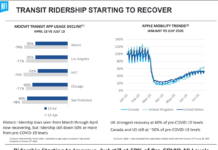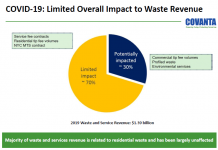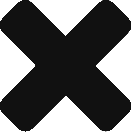By Jim Lane
The case
Last week’s decision stems from a May 2018 challenge brought against EPA in the U.S. Court of Appeals for the Tenth Circuit by the Renewable Fuels Association, the National Corn Growers Association, National Farmers Union, and the American Coalition for Ethanol, working together as the Biofuels Coalition. The petitioners argued that the small refinery exemptions were granted in direct contradiction to the statutory text and purpose of the RFS and challenged three waivers the EPA issued to refineries owned by HollyFrontier Corp. and CVR Energy Inc.’s Wynnewood Refining Co.
The case is HollyFrontier Cheyenne Refining, LLC v. Renewable Fuels Association, 20-472 and the high court heard oral arguments in April. The case involved exemptions given to units of HollyFrontier Corp (HFC) and CVR Energy Inc (CVI). Reuters reports that at issue in the case was whether the EPA impermissibly exempted units of HollyFrontier and CVR Energy in 2017 and 2018 when they had not received continuous prior extensions of an initial exemption.
In January 2020, the Denver-based 10th U.S. Circuit Court of Appeals found that the EPA exceeded its authority “because there was nothing for the agency to ‘extend.’” According to the Circuit Court ruling, “the statute limits exemptions to situations involving ‘extensions,’ with the goal of forcing the market to accept escalating amounts of renewable fuels over time.” The refineries appealed to the Supreme Court, and the federal government, under Biden, switched sides to favor the biofuel supporters.
The SCOTUS decision
The 6-3 ruling overturned a lower court decision that had faulted the U.S. Environmental Protection Agency for giving refineries in Wyoming, Utah and Oklahoma extensions on waivers from the Clean Air Act’s renewable fuel standard requirements even though the companies’ prior exemptions had expired, according to Reuters. Bloomberg reported that the justices rejected arguments that the EPA’s exemption power is limited to only a handful of refineries that have received uninterrupted annual waivers from the Renewable Fuel Standard.
Interestingly, Conservative Justice Amy Coney Barrett joined liberal justices Sonia Sotomayor and Elena Kagan, in dissenting from the decision.
What this means
It’s no secret that President Biden supported biofuels and was “expected to issue fewer waivers and force more refineries to satisfy annual biofuel quotas by either blending plant-based alternatives into their products or buying compliance credits from other companies that have. However, the new precedent will give future administrations wide clearance to exempt oil refineries from annual blending quotas,” according to Bloomberg. And let’s not forget that small refinery waivers surged under former President Trump which didn’t make biofuel producers happy.
But it’s not over yet. The Renewable Fuels Association points out that “While the Supreme Court failed to affirm a portion of the Tenth Circuit decision, the Biofuels Coalition pointed out that the appellate court also ruled that EPA’s exemption decisions must reconcile the agency’s consistent findings that all refineries recover the costs of compliance with the RFS, and that EPA may only use hardship caused by the RFS to justify granting exemptions. Despite today’s Supreme Court decision, EPA must still resolve those other aspects of the Tenth Circuit ruling.”
Reactions from the Industry
Disappointment for sure, but a huge sense of optimism too. Reminds us of the Tubthumping song lyrics, “I get knocked down, but I get up again, You are never gonna keep me down” from Chumbawamba.
Let’s hear from those involved directly first. The Renewable Fuels Association sent this statement on the SCOTUS decision from the Biofuels Coalition involved in the lawsuit:
“A coalition of renewable fuel and farm groups expressed “extreme disappointment” in today’s U.S. Supreme Court decision overturning a 2020 appellate court ruling that struck down three improper small refinery exemptions granted by previous EPA administrators. However, because certain elements of the appellate court ruling were left unchallenged and were not reviewed by the Supreme Court, the groups remain optimistic that the Biden administration will discontinue the past administration’s flagrant abuse of the refinery exemption program.
“Nearly a year and a half ago, the Tenth Circuit handed down a unanimous decision that was ultimately adopted by the very agency we took to court in the first place,” coalition members said. “While we are extremely disappointed in this unfortunate decision from the Supreme Court, we will not stop fighting for America’s farmers and renewable fuel producers. Further, we are optimistic that other elements of the Tenth Circuit decision, which were not reviewed by the Supreme Court, will compel the Biden administration and EPA’s new leadership to take a far more judicious and responsible approach to the refinery exemption program than their predecessors did.”
Irrespective of today’s decision, the Biofuels Coalition thanked President Biden and EPA Administrator Regan for taking swift action to rein in the previous administration’s mismanagement of the small refinery exemption program. After carefully reviewing the issue, new EPA leadership in February reversed the agency’s previous position and announced support for the Tenth Circuit decision. In April, EPA decided to revoke three last-minute refinery exemptions granted the day before President Biden’s inauguration; and in May, EPA announced it would cooperate with a Government Accountability Office investigation into the past administration’s adjudication of small refinery exemptions.
As of today, 70 small refinery exemption petitions remain pending with EPA, for the compliance years 2011-2020.”
So what do others in the industry have to say about this?
Growth Energy CEO Emily Skor told The Digest, “The Supreme Court disagreed with the lower court’s view of extensions, but today’s decision does nothing to change the 10th Circuit’s ruling that exemptions cannot be granted when refiners cannot properly trace their hardship to compliance with the Renewable Fuel Standard (RFS),” said Skor. “In the past, the biofuel industry has looked to the courts to halt abuse. Today, new leaders at the Environmental Protection Agency have shown a willingness to defend the RFS, most recently by reversing three improperly granted exemptions. We look forward to working with the Biden administration to keep a lid on exemptions, further strengthen the RFS, and fast-track our progress toward decarbonization. Engine smart and earth kind biofuels are vital to achieving the nation’s climate goals.”
Michael McAdams, President of the Advanced Biofuels Association said, “We are greatly disappointed by the Supreme Court’s ruling to overturn the 10th Circuit decision with regard to small refinery exemptions. Frankly, the Court got this one wrong. We do not expect, however, that this decision will impact the current Administration’s view on using SREs moving forward.”
Kurt Kovarik, National Biodiesel Board’s Vice President for Federal Affairs, said, “The Supreme Court decision is dismaying because it leaves uncertainty about when EPA may offer exemptions to small refineries. These exemptions harm biodiesel and renewable diesel producers when they reduce demand for advanced biofuels. EPA has provided multiple ways for refiners to meet the Clean Air Act’s RFS requirements, including an outsized bank of reserve RIN credits. The agency must issue the 2021 RFS rules as soon as possible and ensure that RFS volumes it sets are met, with full accounting for any small refinery exemptions in plans to grant.”
Doug Durante, Executive Director, Clean Fuels Development Coalition told The Digest, “Between the courts, the oil industry, and EPA chipping away at the RFS it only underscores that we need to create new demand beyond the confines of the RFS, which frankly may continue to shrink. Ethanol’s highest value is as an octane additive and to reduce the carbon in gasoline by replacing aromatics. The pending re-write of the fuel economy rule is a perfect opportunity to do that and the ethanol industry needs to make that case, as we are doing through the High Octane Low Carbon Alliance.”
Iowa Renewable Fuels Association Executive Director Monte Shaw said, “We are extremely disappointed the Supreme Court didn’t uphold the 10th Circuit Court ruling on eligibility to request RFS refinery exemption extensions. I am not a lawyer, but it sure seems like the 10th Circuit Court got it right when they determined that a refinery can’t extend something it no longer has. However, it is important to remember this case only applied to one of the three major findings from the 10th Circuit Court. Today’s decision allows refiners to apply to extend RFS exemptions that have lapsed. But this case did not impact the 10th Circuit’s ruling that refiners must still prove economic harm directly related to compliance with the RFS. Just as importantly, the 10th Circuit also found that EPA cannot use RIN costs as a cause of economic harm while simultaneously admitting RIN costs are recovered in the refiner’s crack spread. As the Biden EPA has pledged to follow the 10th Circuit Court ruling, today’s decision allows refiners to request an RFS exemption extension, but it does not make it easier for refiners to actually receive one. We fully expect the Biden EPA to keep their commitment to the RFS and to apply the 10th Circuit Court standards relating to economic harm, and as a result, to deny the vast majority of RFS exemption extension requests that are pending or that will be submitted in the future.”
Speaking of Iowa, the Iowa Biodiesel Board’s Executive Director, Grant Kimberley, said they were “extremely disappointed” too and “We believe today’s ruling opens the door for oil refiners to intentionally circumvent the RFS. However, the Supreme Court did not consider nor overturn the economic harm arguments decided in the 10th Circuit, and the EPA is still bound by them. The only question is how many refiners can seek exemptions each year and at what point in the year—or ‘at any time’—they can be granted. The EPA must consider only whether the Renewable Fuel Standard itself causes ‘disproportionate economic harm’ to a small refinery requesting exemption; and the EPA must consider its own evidence that refineries recoup the costs of RFS compliance. As green energy becomes a national priority, we are hopeful that the Biden EPA will keep its commitment to the RFS, fulfilling the promise that a green future depends on a stable and strong biofuels industry.”
Steve Roberts, Director, Opportune LLP, told The Digest, “This is the first of two key decision points expected this summer, with the second being the RFS blending requirements for 2021 and 2022. Additionally, there is a backlog of Small Refinery Exemptions (SREs) to be reviewed and decided upon by the EPA. So, while the SCOTUS ruling provides some clarity for the Small Refiners Exemption, both the biofuel industry and oil refiners are still in a ‘wait and see’ mode, which will continue to drive volatility in the biofuel and RINs markets.”
Former Deputy Undersecretary of Agriculture and now Managing Director of Ocean Park, an Investment Bank that has advised on many biofuels transactions, John Campbell told The Digest, “All eyes will be on EPA’s rulemaking proposal for RVO’s in 2021 and 2022 now that the SRE issue has been settled by the highest court. The 2007 RFS legislation anticipated 150 billion gallons of gasoline demand with traditional corn ethanol at 10% or 15 billion gallons. Despite gains in E-15 demand the 10% blend wall has been problematic when EPA considers the overall RVO landscape and imipact on RIN prices. The RFS has served the biofuels industry well but the time has come to consider reform that takes into account new fuel demand realities and increasing need for decarbonization of the liquid fuel supply.”
“Today’s decision still does not resolve the question of regulatory certainty for the Renewable Fuel Standard,” Michael Newman, Chief Operating Officer of Parhelion Underwriting Inc. told The Digest. “A sudden change of policy is an unwelcome surprise in any market and the interests of policymakers, regulators, market participants and the public should be aligned in wanting a stable market with an orderly, gradually rising trend. A sudden drop in value hurts companies holding RIN assets and impacts government revenues that support sustainable projects; a spike in value is passed on to consumers at the gas pump, eroding public support for the program.”
“A possible alternative is a national clean fuel standard, along the lines of California Low Carbon Fuels Standard, to supercede the RFS at the end of 2022,” said Newman. “It is a program with flexibility for how the government’s goals are achieved – including through the purchase of carbon credits generated by electrical vehicle producers, a price cap to fix the ‘price spike’ and a focus on carbon intensity.”
Some other good news
Another hopeful sign was the Senate’s passage of the Growing Climate Solutions Act, legislation that would break down barriers for farmers and foresters interested in participating in carbon markets.
Growth Energy CEO Emily Skor applauded that news and said, “Farmers have already been making big investments in new technology to reduce their carbon emissions. As reducing greenhouse gas emissions is top of mind for the biofuels industry, we are working with our ag partners to use sustainable farming practices to reduce emissions throughout the entire production lifecycle. The Growing Climate Solutions Act will rightly reward farmers nationwide for their efforts to reduce emissions.”
“Our industry truly is from nature and for nature. We thank Senators Stabenow (D-MI) and Braun (R-IN) for their leadership in passing this legislation.”
Former Sens. Saxby Chambliss (R) and Heidi Heitkamp (D), co-chairs of the Bipartisan Policy Center’s Farm and Forest Climate Solutions Task Force, hailed Senate passage of the Growing Climate Solutions Act of 2021.
“The bill provides USDA with clear bipartisan direction to help producers and forest landowners implement practices that capture carbon, reduce emissions, improve soil health, and make their operations more sustainable,” noted former Sen. Heitkamp.
The Growing Climate Solutions Act creates a certification program at USDA to bolster technical assistance and help address challenges that can prevent farmer and forest landowners from fully participating in voluntary environmental credit markets.
“America’s farmers, ranchers, and forest landowners can play a pivotal role in capturing carbon while creating another income stream for their operations. The 92-8 vote in the Senate indicates the strong support for helping producers access new carbon market opportunities,” former Sen. Chambliss said.
And hey, Oregon approved E15 for customers too! Governor Kate Brown signed into law an important measure that will help clean Oregon’s air and reduce their carbon footprint immediately while saving motorists money at the pump. The new law, HB 3051, revises state law to clarify that gasoline sold in Oregon must contain at least 10 percent ethanol and gives retailers the ability to offer higher ethanol blends, like E15, across the state benefitting consumers and the environment.
“We applaud the state of Oregon and Gov. Brown on clarifying that E15 is approved for sale and giving drivers across the state access to a more affordable, better for the environment option at the pump,” said Skor. “Oregon’s approval of E15 comes just weeks after recent news from neighboring Nevada, who enacted legislation to approve E15. We look forward to working with West Coast retailers to offer drivers an engine smart, earth kind fuel.”
The United States House of Representatives doesn’t want to be left out of the good news too! Also on Friday, they voted to utilize the Congressional Review Act to reinstate regulations preventing unnecessary methane leaks in the oil and gas industry, which were rolled back by the Trump administration.
BlueGreen Alliance’s Executive Director Jason Walsh said of the news, “Preventing unnecessary methane leaks is a no brainer; it’s good for workers, communities, the environment, and the economy. Nobody benefited from rolling back this regulation. Reinstating it is the right move. We know that full deployment of existing practices and technologies at new and modified oil and gas facilities will reduce methane emissions in the United States and could create 50,000 jobs over the next ten years. As our nation works to build back from the COVID-19 pandemic, throwing away tens of thousands of good-paying jobs manufacturing and installing the technology needed to stop leaks that are wasteful and unnecessary would be senseless.”
International policy good news
In case you missed this positive piece of news last week, the UK aviation industry launched the first interim decarbonization targets of at least 15% by 2030 and 40% by 2040, having reaffirmed their commitment to net zero by 2050. The new interim targets lay foundations for rapid acceleration of aviation decarbonization in the coming decades, with new data on the impact of Covid-19 on aviation demand. The focus is on ramping up SAF, permanent carbon removal, and new low and zero carbon technologies – such as electric and hydrogen powered aircraft – so that they can become mainstream in the 2030s.
These milestones are reflected on a new chart taking account of the effects of Covid-19 on aviation demand, and complement an ever-growing set of voluntary industry pledges to drive down emissions fast. Importantly, the announcement also kickstarts detailed work to update by the middle of next year the sector’s Decarbonisation Road Map, first published in 2020, that is expected to demonstrate even faster potential to decarbonise aviation through technology innovation.
Another piece of good news is that the Swiss government renewed the GRI partnership to spread sustainability reporting globally. through a new €3.8 million (US$4.6m) program to increase high-quality sustainability disclosure and accountability by organizations in Africa, Hispanic America and South East Asia. The key aims of the four-year Sustainability Reporting for Responsible Business (SRRB) program are to enhance the capacity of companies for reporting; create and improve the environment for transparency and disclosure; and increase the application of corporate sustainability data by stakeholders.
What this means for those in the bio-world is that those three key world regions will have more training, improved access to sustainability professional development, engagement with government on integrating ESG in the public sector, and more programs like those that will further biobased industry in developing markets.
Bottom Line
This is far from good news for biofuels producers in the U.S. but the Senate and House news, Oregon’s bump up in ethanol blending, and other good news like that offers some light in the dark. And like the saying goes, it ain’t over til it’s over, so stay tuned on the other pieces and decisions yet to come from SCOTUS and keep your fingers crossed for more good news next time.
Jim Lane is editor and publisher of Biofuels Digest where this article was originally published. Biofuels Digest is the most widely read Biofuels daily read by 14,000+ organizations. Subscribe here.







